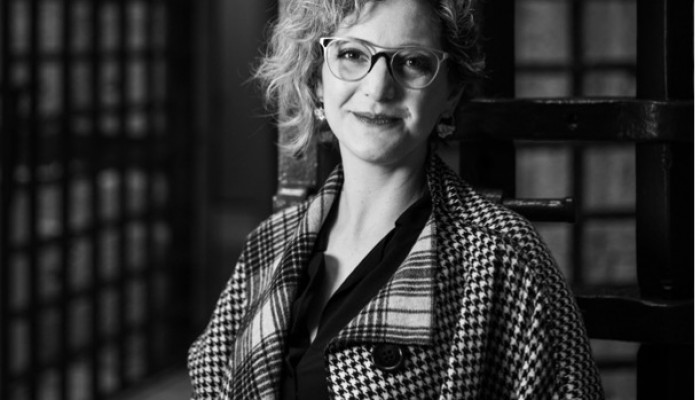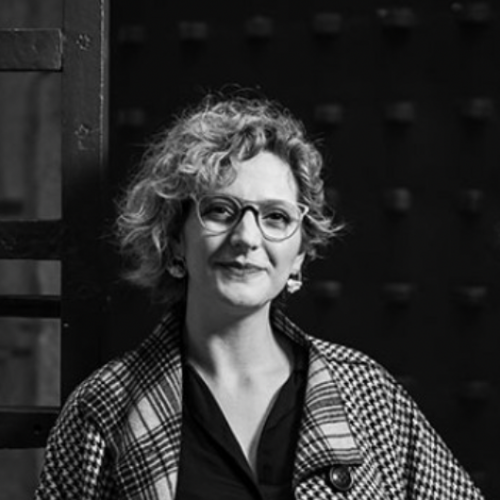What is an editor?

Some years ago, I won the Portuguese women’s championship in speedminton, a sport which is like badminton on steroids. I won the championship not because I was very good at it: I had the minimum of specialized equipment and used to play it for fun with some friends who were really taking it seriously. The thing was that I was the only woman who signed up for the championship and the most incredible thing happened: because I played against all the men, I won a gold medal despite having lost all matches! The situation was obviously laughable and, at first, I felt like a fraud. Being a PhD student back then, imposter syndrome was very present in numerous facets of my life. But a closer look at what had happened made me change the interpretation of the whole situation: I was the only woman who had had the guts to be in the tournament, who had showed up at the court and – I confess – I was really happy to spend some time with good friends, doing something out of the ordinary for me. So, I went into that tournament just channeling the energy (although not the playing skills, obviously) of Serena Williams or of Steffi Graf.
This anecdote summarizes what lead me to apply for the role of editor. Have I ever received any formal training in science communication or editing skills? Absolutely not. Do I have previous experience in editing newsletters? Yes, some, particularly with my department at the University of Porto; with the ESC WG-QRME, the working group on Qualitative Research Methodologies and Epistemologies from when I was co-chair; or with EUROC - the ESC Working Group on Organizational Crime. But being a member of the ESC since 2012 and having participated in most annual conferences since then makes me feel like being editor of “Criminology in Europe” is doable. It is like that experience of playing with friends. Particularly friends who are very good at what they do and with whom I learn a lot. Moreover, I get to be a part of a group in which there are people very dear to me. And at a time when research and academic life risks being packed with individualism, pressure to produce, quantification of metrics for evaluation’s sake, precariousness, and burnout, I think it may be a good thing to be part of a project for the sake of commonalities, collectivities and shared endeavour.
Being an editor is, for me, composed of moments when one is not working on their CV or publication list, but rather allowing others (with whom you may or may not share visions about criminological topics or methods) to have the center stage and showcase their work. Being an editor is being a mediator and facilitating other people’s work to be seen and admired. In the end, this is also the perspective of the ESC about its role in promoting European Criminology.
History repeats. And just as what happened when I was called to (lose) the first match of the speedminton championship, these first months of taking over the role of Editor have been hard, and I realized I had only a faint idea of what was ahead of me when I signed up for the place. Putting together this first issue of the Newsletter made me realize all the hard work that goes into it, but also the dozens or hundreds of people that are behind every issue: members of working groups, conference organizers, ESC board members, the editorial team of the European Journal of Criminology, colleagues paying their homage or respect to others, recipients of awards, and so on. People who are, as I am, working for collective goals: the production and dissemination of criminological research across a whole continent!
Following on the work of my predecessors in the role, my vision for the ESC Newsletter is to have it as a common platform where members of the ESC are in communication – a project that has become even more interactive with the existing blog that has been and will continue to be updated with relevant and timely information. However, adding to the well-known regular content of the publication (such as working group reports, presidential messages and reports), I also wished to open more space for debate in the field. That is why I will reach out to all chairs of the Working Groups asking them to provide information on current activities and to use the blog as a mechanism to broaden their base and disseminate their work. That is also why there is a new section, the Dossier, which will be used to discuss particular criminological topics or themes. The goal is to offer different perspectives and a diversity of authors in the several issues that will come out each year. Still having in mind the idea of collectivity and communion, my choice of the topic to cover in 2023 was quite easy to make: environmental crime and degradation as cause and example of the most harmful collective risks felt nowadays. So, a Dossier in Green Criminology in 2023 made perfect sense and I am happy that colleagues from Rotterdam were generous enough to author the piece that is presented in the current issue.
Regular readers of the newsletter will notice that this issue is also larger than usual. This is because the former Editor-in-Chief, Csaba, and I decided on a form to transition that would feel natural. So, in reality, this first issue was co-edited by both of us – again, in a collective form that, despite some bumps on the way, allowed us to deliver the best issue possible. For that and for all the guidance, I am very grateful to Csaba and his friendship! I am aware of my lack of skills in some aspects, but I consider that I have yet much space to grow in this new role of Editor of Criminology in Europe. I’m channelling the energy of all the role models and fantastic colleagues I have met in this community, and I am proud to have had the guts to sign up for this. I am looking very much forward to these next years as Editor of the ESC Newsletter!
(Picture by Diana Tinoco for Ciência Viva)
